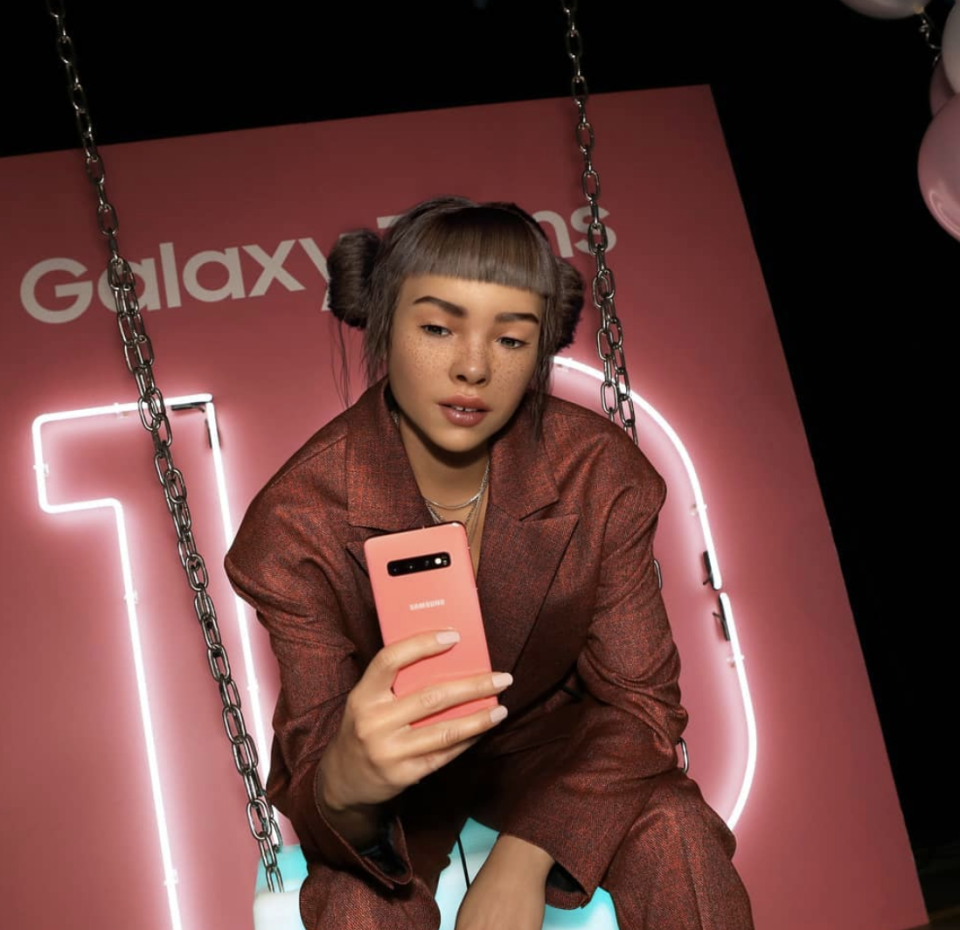Virtual influencers gain real followers — and here's why some find it 'scary'
Miquela Sousa, aka ‘Lil Miquela’, is not real — but she has 1.6M followers on Instagram (FB).
With the rise of social media and artificial intelligence, virtual “influencers” are becoming more of a mainstay trend for big-name brands, despite the potential problems they create.

“It’s getting kind of scary,” Bryan Gold, CEO of creator media platform #Paid, told Yahoo Finance in a recent interview. He said one potential risk is the character’s power to condition consumers and influence purchasing behavior.
“This poses a challenge when brands are partnering with virtual influencers who don’t have any defined values or belief systems,” Gold explained.
“What’s missing is authenticity. Does this virtual influencer actually care about the product that it’s promoting? And if consumers aren’t able to see that it might backfire,” he added.

Virtual gets real
Most recently, Calvin Klein (PHV) came under scrutiny after releasing a controversial ad with supermodel Bella Hadid and computer-generated Miquela.
Viewers quickly accused the ad of “queerbaiting” after the pair shared a kiss — prompting an apology from the fashion brand, which said the intention was “to explore the blurred lines between reality and imagination.”
And the lines are more blurred than ever, as Lil Miquela is one of many virtual beings claiming a stake in the real world.
Lucy, a cartoonish character created by AI-based virtual beings company Fable Studio is able to read and respond to viewers’ reactions in real time.
“It’s about the personalization of entertainment and bonding to a character,” Fable Studio Co-Founder Pete Billinger explained to Yahoo Finance, adding that “we really think” this is the future of social media.
And virtual characters may even come replace digital home assistants like Amazon Alexa (AMZN) & Google Home (GOOGL), according to Billinger.
“We’re really interested in seeing how all of this is going to transcend the ‘assistant role’ in terms of the way we interact with these technologies currently,” Billinger said.
Alexa and Home are “sort of treated as our slaves, and we want to explore what it means to have a more meaningful relationship with them,” he said.
“It’s a two-way street,” he added. “What can we learn from [these virtual beings] and what can we help teach them on our own?”
Alexandra Canal is a Producer at Yahoo Finance. Follow her on Twitter: @alliecanal8193
Read more:
Instagram grapples with 'fake news' problem as phony accounts proliferate
Bluemercury will explore CBD line 'in next 24 months', says co-founder
Why Blade's CEO is ‘excited’ about competition from Uber Copter
KFC to explore plant-based alternatives as Beyond Meat booms
Follow Yahoo Finance on Twitter, Facebook, Instagram, Flipboard, SmartNews, LinkedIn, YouTube, and reddit.
